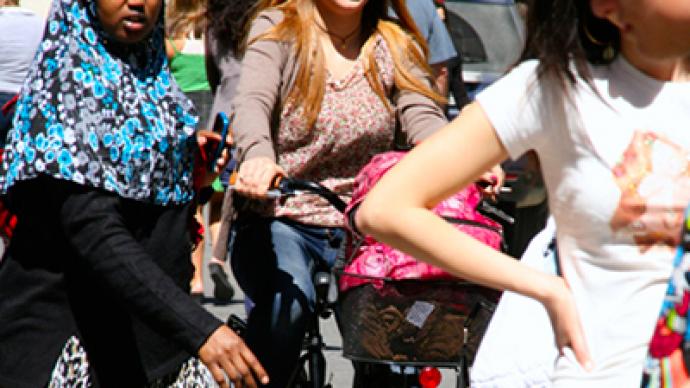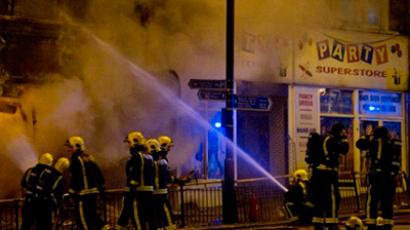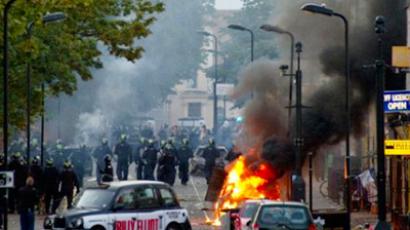Europe vulnerable to social unrest, says Russian politician

As the UK struggles to contain widespread civil unrest, Mikhail Margelov, Chairman of the Federation Council's International Affairs Committee said Europe’s policy of multiculturalism has been a failure and could lead to further acts of violence.
Margelov did not mince his words when asked his opinion of the situation in Britain and across Europe, where millions of first-generation migrants and their families have relocated in the search of work and a better life."Many of the migrants do not give a damn for the rules of decent conduct whether in Paris, Brussels, London or Cologne, to say nothing of European values,” Margelov told Interfax on Wednesday. “So there are no recipes that would guarantee that no more riots will flare up in a year or so.”Reiterating what the German, French and British leaders had earlier acknowledged about Europe’s loose policies regarding immigration, Margelov said multiculturalism is the main culprit behind the unrest.“This policy is a failure,” he said.Margelov added that the idea of multiculturalism or tolerance, where many diverse cultures are expected to live together peacefully under the same roof, has not been accepted either by native Europeans or the migrant population."They patiently put up with each other,” he said. “But patience is something that may wear thin.”Margelov said that "the myth of responsibility" is compelling European governments to grant migrants social benefits, an act that is increasingly being criticized by the native population as economic opportunities are becoming increasingly scarce.In many countries across Europe, where religion, language and other cultural traits have driven a wedge between once homogenous societies, the debate has taken on a political dimension.In Finland, for example, the “True Finns” shook up this traditionally sleepy Nordic country by winning 39 seats in Finland’s 200-member Parliament, thus becoming the third-largest party in the country. This gives them enough political leverage to put a cap on the number of immigrants entering Finland, which is renowned for its generous social benefits, including the allocation of free apartments and food stamps. Many Finnish people say the influx of immigrants to their country is placing undue pressure on these coveted public expenditures, which now face the prospect of being slashed.Meanwhile, in October, German Chancellor Angela Merkel, with a keen nose to the shifting political winds, told a gathering of the conservative Christian Democratic Union (CDU) party that the experiment in a multicultural society has “utterly failed.”"We kidded ourselves a while, we said: 'They won't stay, sometime they will be gone', but this isn't reality," the German leader said. “And of course, the approach [to build] a multicultural [society] and to live side-by-side and to enjoy each other… has failed, utterly failed."Finally, the debate over European immigration and multiculturalism took a deadly turn on July 22 when a Norwegian right-wing radical, Anders Behring Breivik, detonated a massive bomb outside a government building in Oslo, Norway before going on to attack a youth camp sponsored by the ruling Labor party. A total of 72 people were killed in the rampage. Back in the UK, meanwhile, Prime Minister David Cameron, facing the biggest test of his political career, warned the rioters on the streets that “every contingency is being looked at, nothing is off the table.”The British leader, in a statement to the media on Wednesday, acknowledged that the UK has “a big problem with gangs,” which have shown a “complete lack of respect” for the respectable members of British society.“I'm clear that they are in no way representative of the vast majority of young people in our country who despise them, frankly, as much as the rest of us do,” Cameron acknowledged. “But there are pockets of our society that are not just broken but frankly sick.”The question that Mr. Cameron now faces, together with other European leaders, is what is to be done about a situation that has been allowed to take root for so long.Robert Bridge, RT














